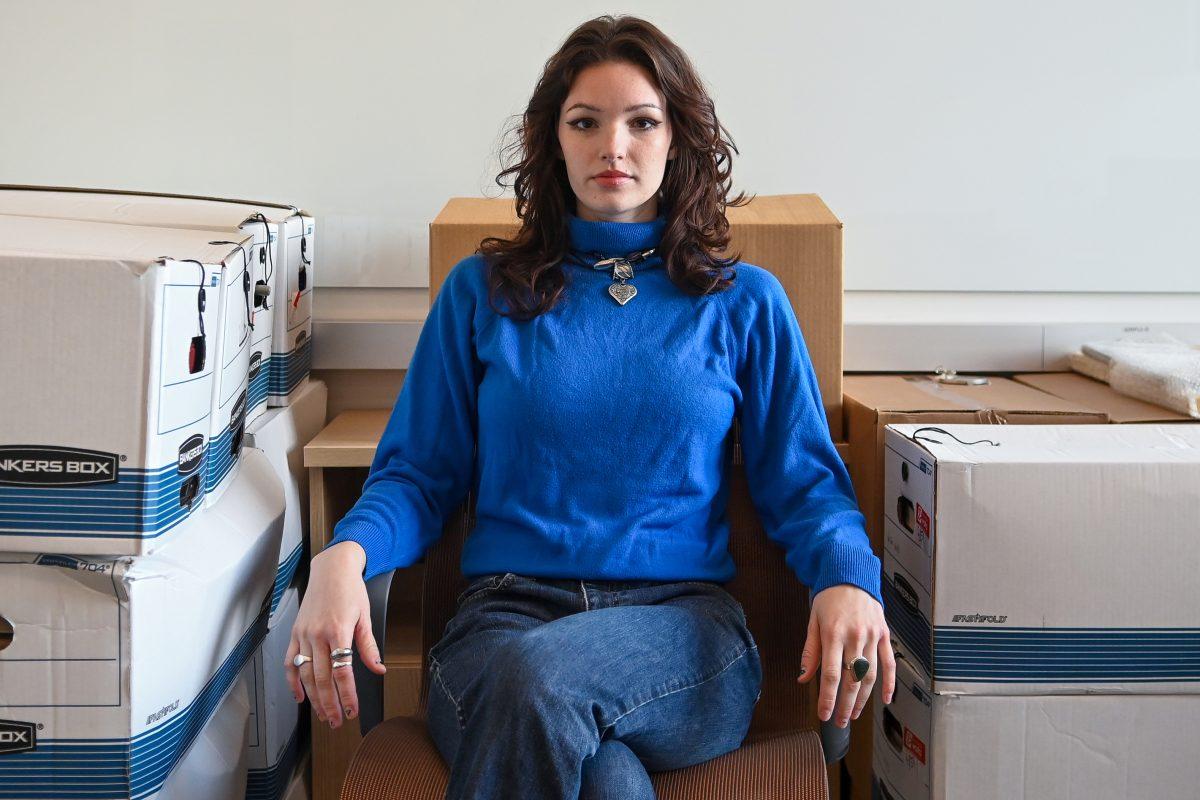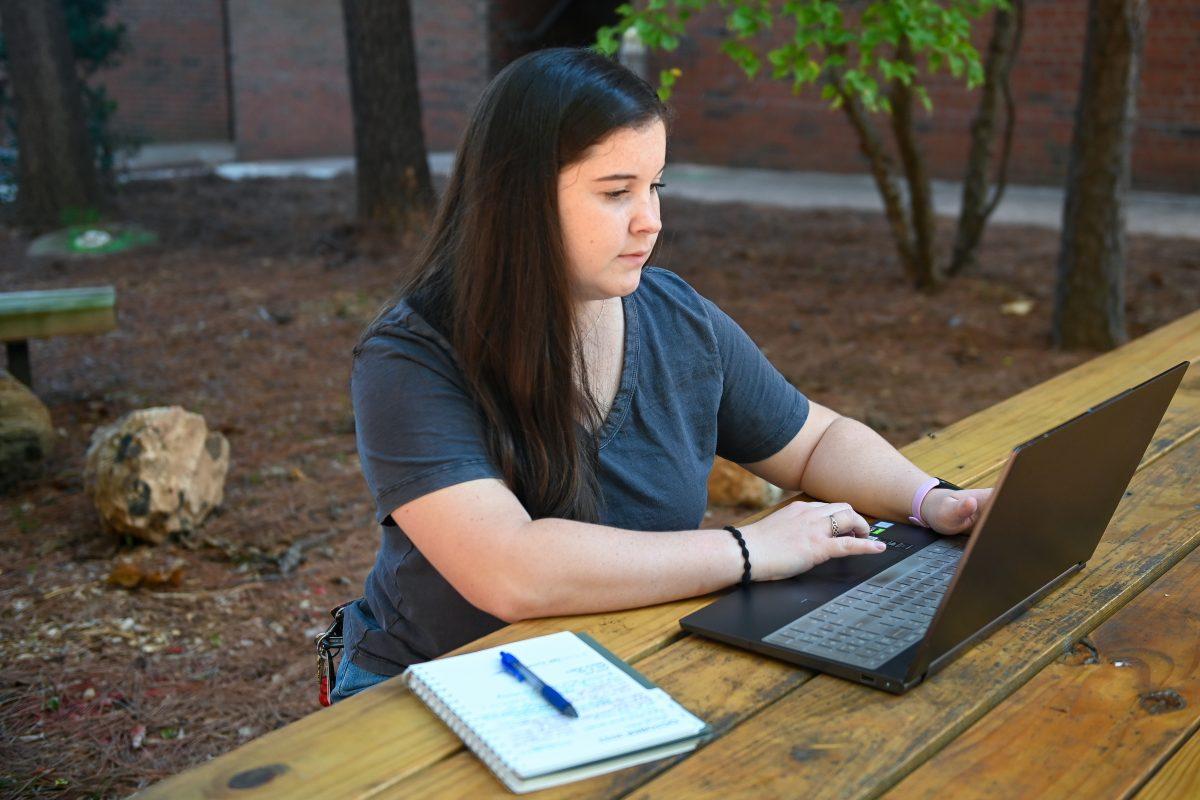Editors Note: Information in this article, originally published Oct. 25, 2023 has been corrected. Incorrect information regarding the length of Egemen Aras’ workday and stipend amounts has been removed. Corbin Goodwin’s degree program was misstated and has been corrected.
Egemen Aras sat in his office after his workday and wondered how he would support his child and wife with the stipend he received from the University this month.
This is the financial reality for many NC State graduate students.
Aras, a fifth-year Ph.D. student studying nuclear engineering and a research assistant, said he struggles to balance his nuclear research and his family.
“In terms of the money that I’m getting from University, it is, I can say, impossible to survive,” Aras said. “Especially if you have a child going to childcare. For example, the University has a childcare support, but not for Ph.D. students, unfortunately.”
NC State is home to over 10,500 graduate students, many of whom work on campus, conduct vital research for the University and aid the entire community’s well-being.
Aras said his financial hardship takes his attention away from his research.
“If you do not have enough money, you are reserving some of your brain to think about the other issues that you’re going to face other than research,” Aras said. “The University agreed on a 3% salary increase per year for research. That’s all we get after all our efforts.”
Devon Adams, second-year Ph.D. student studying public administration, said her stipend is not getting her by in her current living situation.
“My stipend is about $1,600 a month,” Adams said. “So with my rent, which is $1,300, and my car payment, which is about $400, I’m already spending money that I don’t have for groceries and gas on top of that.”
Adams had to get two additional jobs to help pay her bills, which totaled a work week of 70 hours along with school.
On top of a full course load, many graduate students are expected to teach several classes that correspond to their program of study. However, besides being employees, they are often treated solely as students by the University.
Corbin Goodwin, a second-year master’s student and teaching assistant in the industrial systems engineering program, said the financial insecurity that comes with being a graduate student worker at NC State takes a toll on her mental health.
“I am stressed out of my mind,” Goodwin said. “The added ambiguity of whether I’m even going to have funding that was almost promised to me … has been really, really tough.”
NC State offers the Graduate Student Support Plan, which covers tuition and a health insurance plan for full-time graduate students who hold graduate assistantships or fellowships.
Leah Weaver, a fifth-year Ph.D. student studying civil construction and environmental engineering, said graduate student employees work part-time 20-hour weeks, which limits the benefits they qualify for.
“We don’t get benefits outside of the Graduate Student Support Plan,” Weaver said. “We get our tuition paid and health insurance for a certain period of time, but we don’t get vision or dental options. The rest is all out of pocket.”
Although all students pay fees that help the campus function — funding services like University activity organizations, Campus Health, Student Media and building renovations — graduate students are expected to pay $100-$200 per credit hour for these services, for a total of approximately $1,291.05 in fees per semester for the 2023-24 academic year.
Alex Wall, former co-chair of the NC State Graduate Workers Union and graduate student, said the graduate student fees contribute to students’ financial hardship.
“A lot of people can’t afford to buy a car because they have to pay the university $2,600 back every year or have to eat ramen and frozen pizzas every night,” Wall said. “A lot of people go to grad school, and it is the prime of their youth in their 20s, and they’re not allowed to enjoy it.”
Weaver said she feels a difference between department administration and University administration.
“The department is very supportive, and it feels like there’s dialogue, but then when it comes to NC State University, there is sort of a top down policy — you’re not really a student, and you’re not really an employee,” Weaver said.
Goodwin said she has also experienced a lack of support from the University.
“My professors have been great,” Goodwin said. “Students have been great. But the support almost completely disappeared as soon as we got here. It’s almost like there’s no recognition that we’re working for them.”
Kaitlyn Tiffany, a second-year master’s student and teaching assistant in the parks and recreation tourism department, said she thinks the cost of being a graduate student worker at NC State contributes to inequity.
“The University asks, ‘Why we don’t have more diverse grad students?’” Tiffany said. “It’s because the only people that can afford to take these things are the people that already have that privilege.”
Tiffany said she is frustrated by seeing this inequity on campus.
“If the University would just listen, because it feels like we’re shouting into the void,” Tiffany said. “It’s frustrating to see Randy going up to his really, really nice house driving his really nice cars while we’re going up to the campus food bank because we can’t afford to eat.”
Tiffany said if the University invests in their graduate students, the investment will pay off.
“Even reducing our fees would be a step in the right direction,” Tiffany said.
Kaitlyn Tiffany, a graduate student studying parks, recreation and tourism management, works on her computer in Biltmore Hall on Wednesday, Oct. 18, 2023.









